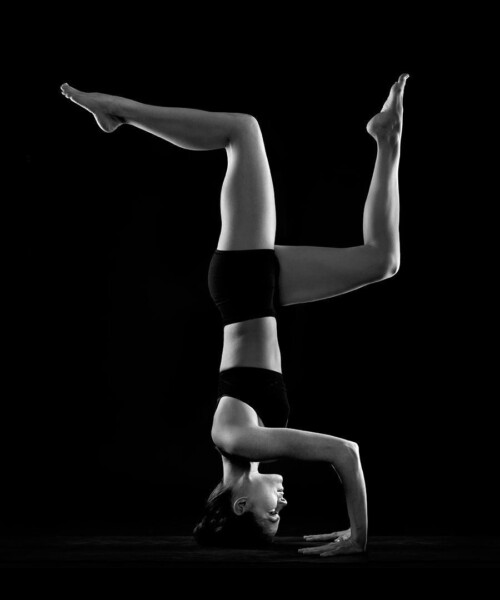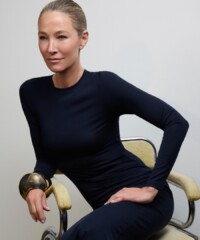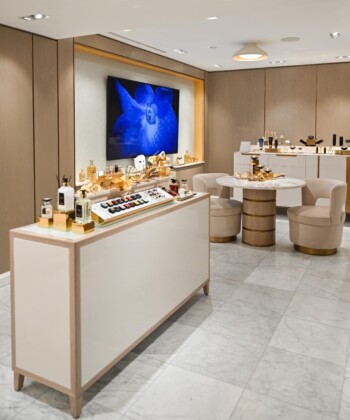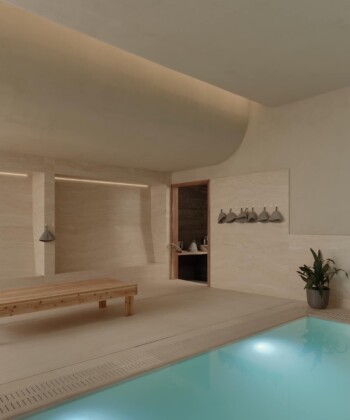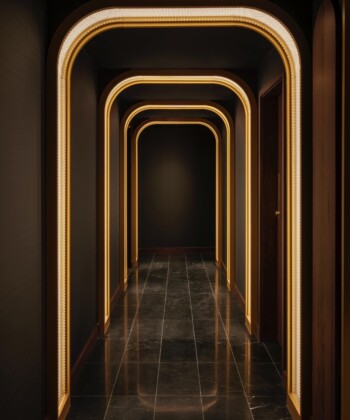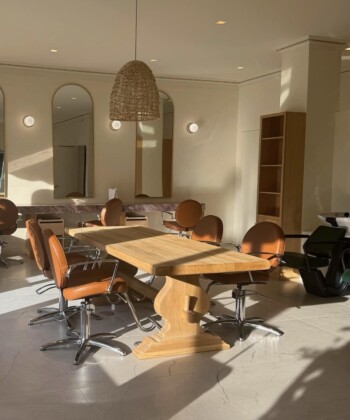There’s a perfectly nice yoga studio down the street: air-conditioned, with a creaky hardwood floor and the lingering scent of incense, body lotion and exertion. It’s got a communal changing room, mats for people who forgot to bring theirs and coconut water for sale.
And then there’s the personal yoga studio in Donna Karan‘s 7,000-square-foot apartment overlooking Central Park West. It’s a space inspired, at least in part, by the fashion magnate’s go-to Hamptons studio, the East End celeb favorite Yoga Shanti, where sunlight pours in from massive windows, reflecting off the gold ceiling and gleaming wood floors. The sweaty woman in dolphin pose one mat over, meanwhile, bears one of the world’s most famous faces.
There are yoga studios, and there are yoga studios.
It’s an unspoken rule in yoga that you aren’t supposed to evaluate your teacher’s pedicure, or anything else. Being on your mat means that you practice the near-impossible yogic axiom of “awareness without judgment”—and that means resisting the temptation to ascertain whether your spiritual guru is sporting a newer Lululemon get-up than you are.
Or does it? Certainly, finding yourself admiring your teacher’s $600 Fiorentini + Baker boots fits an uncomfortable elitist stereotype that practitioners during the swami-centric ’60s and ’70s would have mocked, or at least discouraged. But over the course of half a century, that version of yoga has undeniably transformed into something much broader, evolving to adapt to the tastes of those who practice it—and pay for it—most.
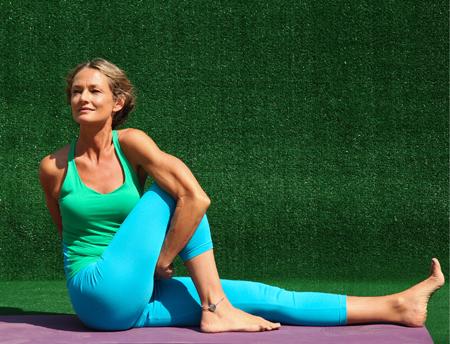 Colleen Saidman. Photo: JP Yim/WireImage
Colleen Saidman. Photo: JP Yim/WireImage
Colleen Saidman, proud owner of those boots, is the blonder half of the world’s most famous yoga couple (she’s married to mega-yogi Rodney Yee). As part of the royalty crowned to reign over the cottage industry of Western yoga, her tastes are comfortably aligned with those of many of her students at Yoga Shanti—where she’s taught Karan, along with Christy Turlington, Russell Simmons and power agent Esther Newberg. Saidman says her students appreciate the fact that she’s not about to advise them to cash out in favor of a life of moderate means. Not even close.
“Living every moment to the fullest is yogic,” she says. “Actually, it’s all yogic, but I prefer to be yogic in beautiful shoes.” She and Yee gladly admit they enjoy the fruits of their labors—like with the $700 Yves Delorme sheets that Saidman calls her “best investment ever.”
Clearly, we’re not in India anymore. In the modern, $10 billion–yoga-industry era, the centuries-old spiritual discipline might net top instructors—like Baron Baptiste, who holds court over a multimillion-dollar yoga empire—seven figures a year, according to yoga agent Ava Taylor. Premier studios like New York’s Exhale and Sync command nearly $30 per class. And next month at the Smithsonian, the first exhibition on the visual history of the practice, “Yoga: The Art of Transformation,” is being ushered in with star wattage: Alec Baldwin and yogini wife, Hilaria, will co-chair the opening gala, with tables going for $50,000.
“We must be in the dance of generating energy through receiving, giving and spending money in ways that are life affirming,” says Baptiste, putting a New Age spin on a classic capitalist motto. “We then create a pathway between material pleasure and what matters most.” Baptiste devotes his dollars to scuba diving in Kona and Zanzibar—and to sprucing up his home, which is tucked away in the middle of the mountains. “Get over the guilt,” he says.
In terms of reconciling a quest for spiritual simplicity with the appreciation of a physical existence rich in luxury, it seems that yoga isn’t part of the conflict at all; it’s part of the solution. Yoga encourages practitioners to find their happiness in the immediate moment, to “be here now”—which means anyone, anywhere, at any time. The mistress of yoga 2.0, social-media guru Sadie Nardini, describes herself as a “healthy-hedonism advocate,” having made peace with the seemingly disparate concepts of material comfort and spiritual understanding. “If you feel better with a little meat, wine, even a cigarette here and there,” says Nardini, “who are we to make you feel guilty about it?”
NEW YORK’S PREMIER STUDIOS
Yoga Shanti
32 Bridge Street
Sag Harbor, NY
631.725.6424
yogashanti.com
Sync Studio
133 S 2nd Street
Brooklyn, NY
718-438-4725
syncstudio.net
Exhale Spa
Locations throughout NYC
exhalespa.com

























